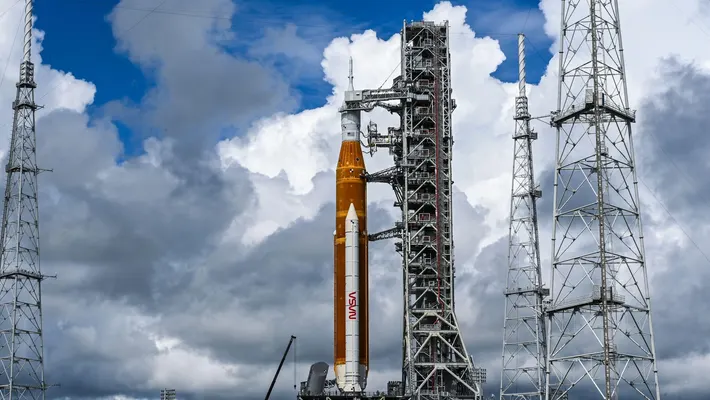By: Richard Zhao
Although NASA’s current top goal is to return astronauts to the moon, a survey held by the Pew Research Center from May 30 to June 4, 2023, showed that only 12 percent of Americans believe that landing on the moon should be of utmost priority. Therefore there is a huge discrepancy between NASA’s focus and the general population’s attitude regarding space travel. Instead, 60 percent of Americans believe that NASA’s most important task should be watching asteroids that could hit potentially hit Earth.
Artemis II, the lunar mission that aims to send four astronauts to the moon by the end of 2024, is NASA’s top priority right now. The mission follows the 2022 Artemis I mission, which sent an unmanned spacecraft into orbit around the moon.
NASA’s goal is not widely supported, and the agency is facing a budget cut that makes the mission even more difficult. The Senate Appropriations Committee, responsible for funding NASA, said that the $8 billion worth of funds was “sufficient funding to continue progress on the Artemis Campaign Development,” but many people at NASA believe that managing to land astronauts on the moon by even 2025 is optimistic at best.
In addition to NASA’s goal of furthering its lunar exploration program, the agency has also been working on asteroid monitoring–the issue that most Americans are concerned about. Last year, the agency successfully deflected an asteroid by hitting it with a spacecraft. Although the asteroid posed no danger to Earth the experiment showed that NASA is capable of changing the trajectory of an asteroid in the event that one poses a threat to the planet.
Instead of focusing on exploration, Americans are more interested in economic development and tourism regarding space. The Pew Research Center’s poll also found that 55 percent of U.S. adults believe that people will be touring space in the next 50 years. Currently, only Elon Musk’s SpaceX has a program where people can pay to visit space. SpaceX has taken professional astronauts to the international space station and is planning privately funded missions to space. Most people believe that privately owned companies are doing a good job at opening space travel to a wider audience, with 41 percent of respondents saying that the companies are doing great compared to 15 percent who believed that the companies were doing a bad job.
Other issues that Americans are worried about include space debris, although over half of Americans are not sure how private companies are doing in terms of limiting space debris. Additionally, 35 percent of Americans are interested in orbiting Earth in a spacecraft.” Finally, almost half of Americans believe that the United States “will definitely or probably fight against other nations in space in the next 50 years.” With a plethora of other, more exciting topics to focus on, lunar exploration has little support among the American population.











